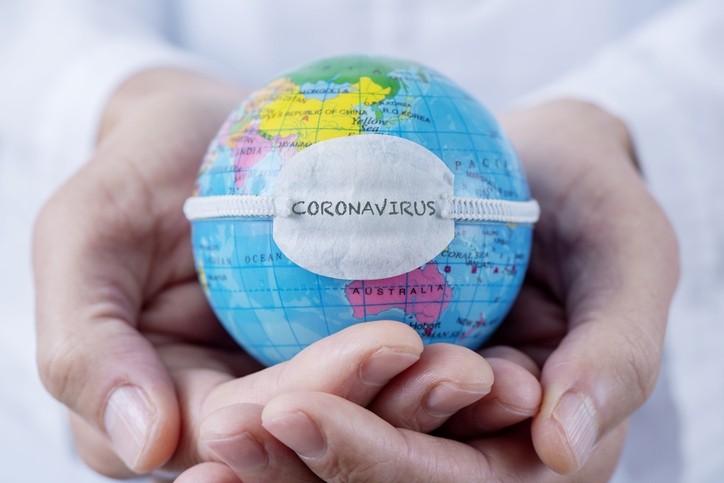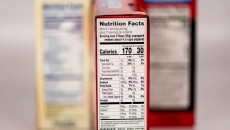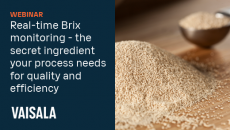‘SARS-CoV-2 is not a direct food safety concern… Neither food nor food packaging is a 'pathway for the spread of COVID-19,' says FAO

The guidance - which updates interim guidance issued by the FAO in April 2020 - notes that coronaviruses cannot multiply in food or on inanimate surfaces, only in humans and certain animals.
Moreover, once in the environment, viruses degrade and becomes less infectious, says the guidance: “It is highly unlikely that people can contract COVID-19 from food or food packaging (Goldman, 2020; ICMSF, 2020; NZFSSRC, 2020). Evidence to date does not indicate that food or food packaging is an important pathway for the spread of human respiratory illnesses, including SARS-CoV-2.
“COVID-19 is primarily transmitted during close contact among people through respiratory droplets and aerosols generated by activities such as coughing, sneezing, shouting, singing and speaking (WHO, 2020a). Alternatively, some respiratory droplets may land on surfaces surrounding the infected person.”
Studies into viability of COVID-19 on food surfaces should be ‘interpreted with caution’
Several papers have described the persistence of the SARS-CoV-2 on different surfaces, documenting that it can remain viable for up to 72 hours on plastic and stainless steel, up to four hours on copper, and up to 24 hours on cardboard (see van Doremalen, Bushmaker et al., 2020). Others have investigated the stability of the virus on surfaces kept at different temperatures or varying other parameters (see Kumar, Singh et al., 2021).
While such investigations add to our understanding of the persistence and survivability of COVID-19, however, “they have typically been conducted under laboratory conditions, with controlled relative humidity, temperature and other factors, and should therefore be interpreted with caution when considering virus stability under actual conditions of the often cool (or freezing) and humid food processing and transportation environment," notes the guidance.
“It is important to note that, although the detection of virus or viral ribonucleic acid (RNA) remnants on foods and food packaging provides evidence of previous contamination and is not disputed, there is no confirmation of SARS-CoV-2, or any other respiratory illness-causing virus, being transmitted by food or food packaging and causing illnesses in people who touch the contaminated food products or packaging.”
Standard cleaning and sanitizing procedures should be effective
As for mitigation efforts in food production environments, the virus responsible for COVID-19 is susceptible to most commonly used disinfectants and sanitizing agents used in food processing facilities, it adds: “Standard cleaning and sanitizing procedures, as outlined in the food business operator’s food safety management system should therefore be effective at disinfecting the food processing environment.”
While microbiological environmental sampling has a role in verifying sanitation protocols, the testing for SARS-CoV-2 in food processing facilities or on food packaging is “costly, time consuming and does not aid in risk-based decision-making processes for consumer protection and is therefore not recommended,” it claims.
‘Gloves are not essential for the management of COVID-19 in food’
Gloves, meanwhile, “are not essential for the management of COVID-19 in food,” states the guidance, which notes that gloves can provide a false sense of security.
“Handwashing is a greater protective barrier to infection than wearing disposable gloves. Disposable gloves should not be used in the food work environment as a substitute for handwashing. Viruses and bacteria can contaminate disposable gloves in the same way they get onto workers’ hands.
“Removal of disposable gloves can lead to contamination of hands. Wearing disposable gloves can also give a false sense of security and may result in staff not washing hands as frequently as required. Non-touch alternatives may be implemented instead of those currently requiring use of gloves.”
While surface contamination of items brought into a facility is an unlikely route of introduction, meanwhile, “it is prudent that all non-employees, including delivery drivers, thoroughly wash hands, sanitize or use a hand sanitizer before entering premises and, for instance, passing delivery documents to food premises staff.”
Vaccinations for food workers should be ‘encouraged and enabled’
In general, says the guidance, raw agricultural food products and packaged foods are unlikely sources of SARS-CoV-2 exposure to workers, noting that “contact with infected co-workers” is the biggest challenge.
“Food processing establishments are particularly likely to serve as a super spreader sites as workers often work long hours in very close proximity to others under cool and humid conditions… Indeed, clusters of COVID-19 have been linked to processing facilities for meat, poultry, fish, fruits and vegetables, and even pet food.”
With this in mind, the best thing food companies can do is ensure all staff are vaccinated, says the guidance, which explains that vaccinations can reduce the risk of transmitting the disease and protect staff from the risk of serious disease and hospitalization, and should be encouraged and enabled for all workers, “for example, by providing the necessary flexibility in shift scheduling.”












